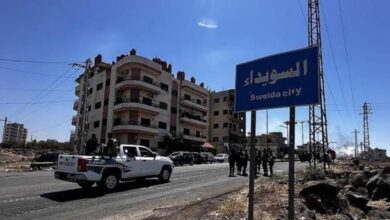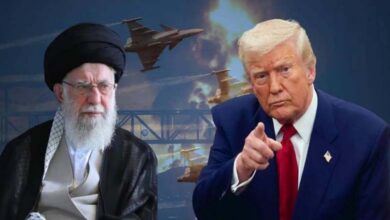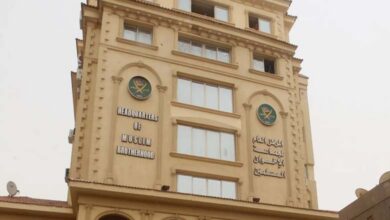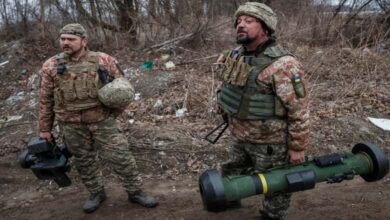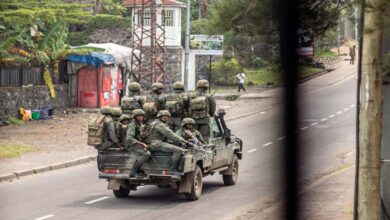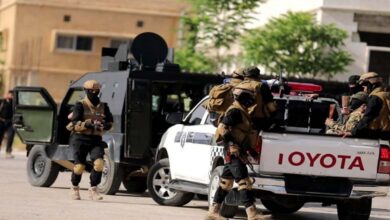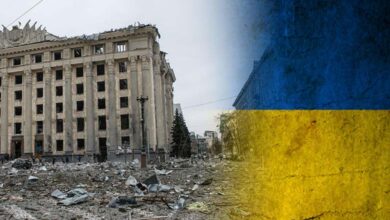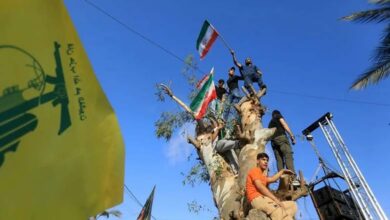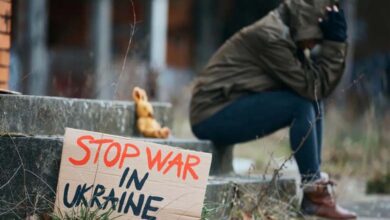Civil Forces Move to Form a Government in Response to Al-Burhan’s Roadmap
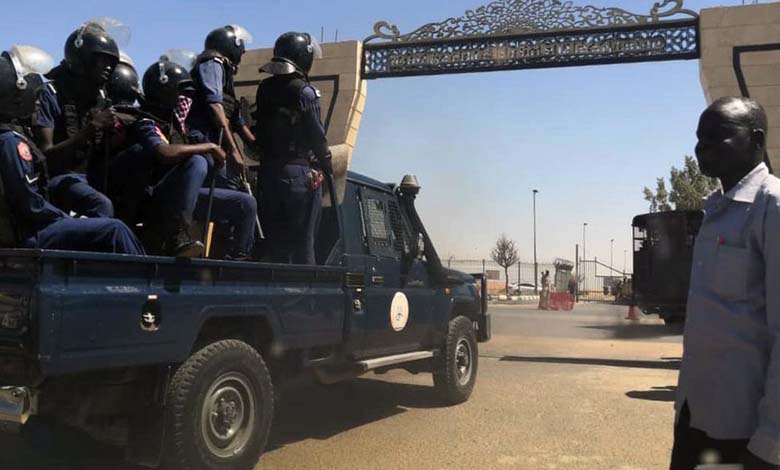
The technical committees of the civil forces have completed drafting and preparing the interim constitution, the political charter, and the government program for the parallel administration in areas controlled by the Rapid Support Forces (RSF).
Civil forces in Sudan are moving to establish a government in areas controlled by the Rapid Support Forces, led by Mohamed Hamdan Dagalo “Hemedti,” asserting that they do not recognize the military government announced by Abdel Fattah Al-Burhan in Port Sudan. This new step signals a looming scenario of division in the country.
The official spokesperson for the United Civil Forces “Qimam,” Othman Abdel Rahman Suleiman, revealed their intention to sign the political charter on February 17, paving the way for the formation of a Sudanese government in areas controlled by the RSF.
-
Angry Protests in Nyala Against Sudanese Armed Forces’ Bombing of Civilians
-
The Addis Ababa meetings assess the ability of civil forces to stop the war in Sudan
Othman stated to the local news site Darfur24 that “the signing of the political charter will take place on February 17 in Kenya.”
He added that the organizations that have agreed on the political charter include components of the United Civil Forces Alliance “Qimam,” the Democratic Civil Forces Coordination “Taqaddum,” the Unified Federal Party, the Umma Party led by Fadlallah Burma Nasir, the Original Federal Party, as well as components of the Revolutionary Front and other civil, political, and social forces.
He pointed out that the technical committees have completed drafting and preparing the interim constitution, the political charter, and the parallel government program.
-
Sudanese Civil Forces Call for Political Process and End to War
-
Sudanese Civil Forces refuse to flood the political process with untrue elements
Othman clarified that the primary tasks of the upcoming government will be to protect civilians, provide health, education, and electricity services, issue official documents, deliver humanitarian aid, and neutralize the army’s air strikes. He emphasized that the new government is not a parallel government to that of Port Sudan, which they do not recognize.
Concerns Over Division
The army dominates the government operating from Port Sudan in eastern Sudan.
The announcement of a government in RSF-controlled areas raises concerns about the potential division of the country. Some argue that the signs of division have already begun with the introduction of a new currency and the administration of Sudanese national exams in army-controlled areas.
-
Sudan War: Multiple Scenarios Shaped by Tactical Shifts
-
Sudanese Army’s Military Gains Undermine Chances of a Peaceful Resolution to the Crisis
The RSF had previously vowed to “change the military balance” in Sudan, particularly after the Sudanese army recently expanded into new areas in Al-Jazira and Bahri.
Sudanese Foreign Ministry Announces Post-War Roadmap
On Sunday, Sudan’s Ministry of Foreign Affairs announced that the “state leadership” has proposed a roadmap for the post-war phase, which includes resuming the political process and culminating in general elections.
In a statement, the Ministry highlighted “the successes achieved by the armed forces and joint supporting forces, tightening the noose around the RSF in various battlefronts.”
-
The Sudanese Army and the Use of Chemical Weapons: Recent War Violations and Humanitarian Impact
-
Juba Opens Fire on the Sudanese Army and Its Islamist Militias… Details
The statement continued: “Following these successes, the state leadership, after extensive consultations with national and societal forces, proposed a roadmap for preparing the post-war phase and resuming the comprehensive political process, which will culminate in holding free and fair general elections.”
The roadmap includes:
- Launching an inclusive national dialogue for all political and societal forces, welcoming all who take a national stance and distance themselves from the aggressors.
- Forming a government of independent national experts to resume the transitional period and help the state overcome the consequences of war.
- Amending the constitutional document and having it approved by national and societal forces before selecting a civilian prime minister to lead the executive branch without interference.
- Making disarmament and vacating civilian infrastructure a precondition for any negotiations with the RSF.
- Rejecting any ceasefire proposal unless the siege on El Fasher (North Darfur) is lifted, followed by an RSF withdrawal from Khartoum, West Kordofan, and the Darfur states.
-
The Army and the Muslim Brotherhood Loot Sudanese Properties in Omdurman and Wad Madani
-
Riots and Violence… The Flames of War Pursue Sudanese in Juba
Intensifying Clashes in El Fasher and Political Developments
Since May 10, 2024, clashes between the army and the RSF have continued in El Fasher, despite international warnings about fighting in the city, which serves as the humanitarian operations hub for the five Darfur states.
Sudan’s Foreign Ministry has urged the international community, particularly the African Union, the United Nations, and the Arab League, to support the roadmap, considering it a national consensus to establish peace, stability, and complete the transition process.
Military sources reported on Sunday that a new Sudanese government is expected to be formed after the army regains full control of Khartoum.
-
US Sanctions on Sudan’s Army Chief: What Impact?
-
Killing Civilians and Looting Aid: Crimes Committed by the Army and the Muslim Brotherhood in Sudan
On Saturday, Sudanese army chief Al-Burhan announced his intention to form a transitional government soon. In a speech in Port Sudan, he described the upcoming government as either “a caretaker government” or “a wartime government” composed of “independent national experts.”
He declared, “From now on, we will determine the time, place, and means of battle. The land is open, and the skies are clear.”
He added that the government’s mission will be to “lay the groundwork to complete the transition, whether through a transitional period or a foundational phase leading to elections.”
-
Testimonies Reveal New Violations by the Sudanese Army in the Country
-
Sudan’s Al-Jazirah Region under Scrutiny: “Violations” Worsen Civilian Suffering
Criticism from the RSF
RSF advisor Mohammed Tabeq dismissed Al-Burhan’s speech, calling it “nothing more than a theatrical performance to deceive the international community into believing he has severed ties with the Islamic Movement and the National Congress Party.”
Tabeq added that Al-Burhan has forgotten that “such theatrics no longer fool the international community or the Sudanese people.” He likened it to the “Go to the palace as President, and I will go to prison as a detainee” scenario, implying that it is a staged political maneuver.
Al-Burhan emphasized that the government will also focus on “completing the necessary military operations to cleanse Sudan of these rebels,” referring to the RSF.
-
Escalation of Airstrikes in Sudan: Protests Against Civilian Bombing and Calls to Protect Innocent Lives
-
Sudanese Analyst: Khartoum Caught Between Fire and Famine… Civil War Exacerbates Human and Economic Suffering
Additionally, he announced that a constitutional document will be drafted before appointing a prime minister, promising not to interfere in the PM’s responsibilities.
In November, the army chief reshuffled his cabinet, replacing four ministers, including the ministers of foreign affairs and information.
A Devastating War
Sudan has been embroiled in a devastating war between Al-Burhan and his former ally Dagalo since April 2023.
-
Efforts to Bridge the Divide within the Islamic Movement… The Sudanese Muslim Brotherhood on Hot Coals
-
Conflicts among Militias Recruited by the Army Threaten to Ignite Eastern Sudan
In his speech on Saturday, Al-Burhan ruled out any negotiations with the RSF unless they withdraw from Khartoum, West Kordofan, and Darfur, and regroup in designated areas.
In recent weeks, the army has regained large areas of the capital and its surroundings that had been under RSF control for nearly two years.
The conflict has resulted in tens of thousands of deaths, the displacement of over 12 million Sudanese, and what the International Rescue Committee has described as “the worst humanitarian crisis ever recorded.”


